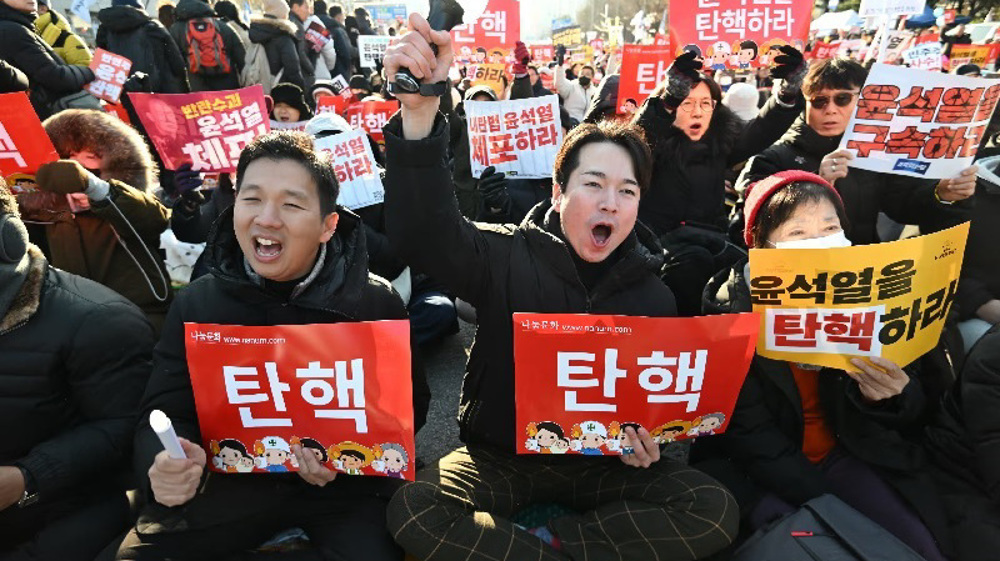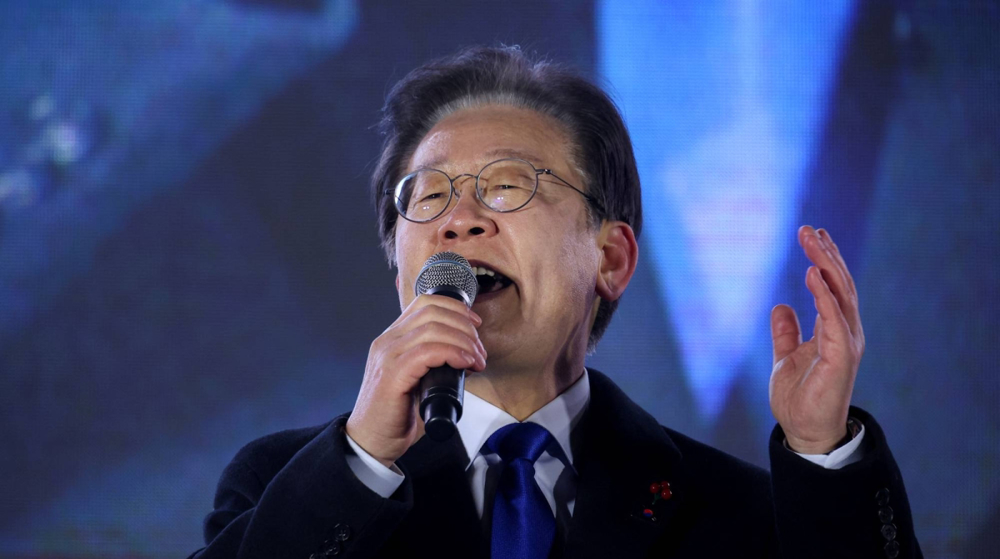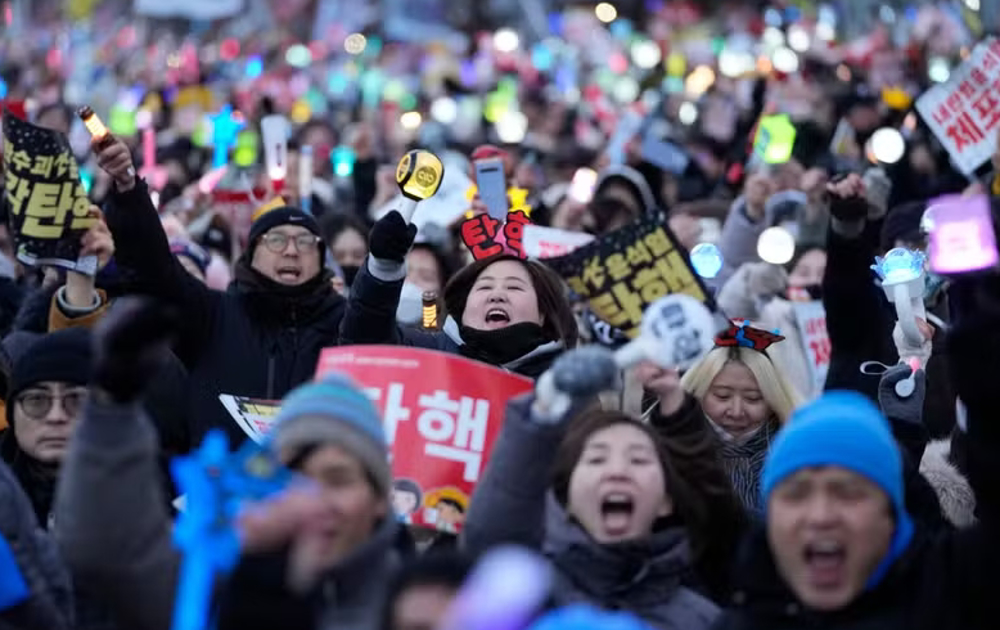Anti-gov't protesters take to streets in South Korea
Tens of thousands of people have held an anti-government demonstration in South Korea, the largest of its kind in almost a decade.
Around 80,000 protesters, including men, women, and children showed up at the gathering dubbed the "People's General Uprising” on Saturday in the capital, Seoul.
The demonstration was called for by workers, farmers, teachers and social activists to protest against a series of government policies, including planned labor reforms, the opening of protected markets for some agricultural goods and the imposition of state-issued history textbooks in schools.
For the first time, the government of South Korea is set to issue government-written history textbooks. Critics are angry about the plan because they believe it is an attempt to whitewash the brutal dictatorships that preceded the country's bloody transition toward democracy in the 1980s
Many of the protesters occupied a major downtown street and began marching towards the presidential Blue House, but were blocked by hundreds of security forces and road blocks.
Local media were reporting an unusually large number of police, many wearing helmets and body armor across Seoul.
The protest has been described as largely peaceful. Yet, there have been reports of brief clashes between law enforcement forces and members of one of the main organizers for the protest, the Korean Confederation of Trade Unions (KCTU), when police officers unsuccessfully tried to arrest KCTU President Han Sang-goon during a news conference.
Han is wanted for organizing a similar protest in May that turned violent with clashes between authorities and demonstrators.
According to authorities, the rally was the largest one since 2008 when people took to the streets to protest US beef imports containing mad cow disease at the time.
VIDEO | Yemenis praise the military for its successful operations against Israel
VIDEO | Israel continues to bomb Gaza homes
VIDEO | An insider's view of the country: Meybod City in Yazd
‘All wars have rules. All of those rules have been broken’ by Israel
VIDEO | Report flags India’s violation of rights of Rohingya detainees
Turkey's foreign minister meets Syria's de facto leader in Damascus
VIDEO | US Syria plots
'Next to impossible' to rescue patients from Gaza's Kamal Adwan Hospital: Director










 This makes it easy to access the Press TV website
This makes it easy to access the Press TV website